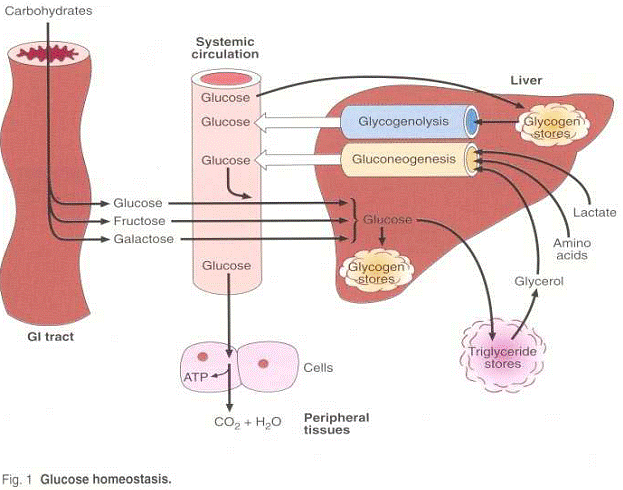A few years ago it was discovered that dietary Coconut oil was helpful. That isn't the cure for Alzheimer's, being in ketosis was the secret, and coconut oil is simply one fat that people use to get there. We've got better knowledge and tools today. Focus on understanding how to achieve and maintain ![]() nutritional ketosis. Get on the
nutritional ketosis. Get on the ![]() Banting Diet.
Banting Diet.
Reducing the Risk of Alzheimer's Disease
Prof Dominic D'Agostino
 Alzheimer's disease is associated with impaired glucose metabolism and insulin resistance.
Alzheimer's disease is associated with impaired glucose metabolism and insulin resistance.
That causes an accumulation of toxic proteins and the deregulation of several enzymes. The amyloid plaques that are characteristic of Alzheimer's, are in fact the brains attempt to defend itself against three types of injury. Those are inflammation, lack of nutrients and support, and toxins in the blood.
If we want to find the cause of Alzheimer's we need to undertake a search for the sources of those "injuries."
Ketones save the brain from using the broken glucose energy pathway and help restore the brain. If people can restore their general metabolism by better diet, exercise, sleep and perhaps meditation, the health of the brain will also improve. For most of us, that should be a doable task.
Alzheimer's and dementia basics
Alzheimer's is the most common form of dementia, a general term for memory loss and other intellectual abilities serious enough to interfere with daily life. Alzheimer's disease accounts for 60 to 80 percent of dementia cases.
Alzheimer's is not a normal part of aging, although the greatest known risk factors are increasing age and the ApoE4 gene. One of the key drivers is the gradual development of insulin resistance in the body.
The damage caused by insulin resistance is happening in the brain 20 years before Alzheimer's can be diagnosed. Alzheimer's is ![]() therefore, seen as a disease of old age. However, the
therefore, seen as a disease of old age. However, the ![]() causes are metabolic, and as the Dunedin Study shows so clearly even at 38 most people are showing quite a lot of metabolic decline, you can see
causes are metabolic, and as the Dunedin Study shows so clearly even at 38 most people are showing quite a lot of metabolic decline, you can see ![]() metabolic syndrome developing already.
metabolic syndrome developing already.
Up to 5 percent of people with the disease have early onset Alzheimer's (also known as younger-onset), which often appears when someone is in their 40s or 50s, so it's NOT a disease of old age. Dr Dale Bredesen tells us that early onset Alzheimer's is probably the result of environmental toxins getting into the body.
Can Alzheimer’s be treated with the keto diet?
Alzheimer's Disease expert Dr. Mary Newport discusses her personal discovery of the ketogenic diet as an effective treatment for her husband's Alzheimer's symptoms. (10 minutes)
Published by: The Charlie Foundation - May 2020
![]() Video URL: https://youtu.be/xlve_ee2-tw
Video URL: https://youtu.be/xlve_ee2-tw
Low Carb Tips to Improve for Energy & Performance
Learn about the importance of controlling carbohydrate intake for health, fitness, & performance with Dr. Jeff Volek, one of the nation's leading researchers on low carbohydrate diets. (72 minutes)
Published by: UCAN (Commercial Product) Aug 2015
![]() Video URL: https://youtu.be/CjDfJCa8biI
Video URL: https://youtu.be/CjDfJCa8biI
Is there a Preventative Strategy?
We think so. People want a simple answer to "what should I do?" Dale Bredesen says, "Everything possible."
That's not very helpful. Work with your local GP to do these things.
![]() Drive insulin resistance down. Change your diet. Get into ketosis.
Drive insulin resistance down. Change your diet. Get into ketosis.
![]() Reduce the inflammation in your body. Change your diet, get more sleep and meditate.
Reduce the inflammation in your body. Change your diet, get more sleep and meditate.
![]() Examine the hormone balance in your body. Your doctor will know the options.
Examine the hormone balance in your body. Your doctor will know the options.
![]() Test for specific toxins. Your doctor will know something about this too.
Test for specific toxins. Your doctor will know something about this too.
![]() Find out your ApoE status. That involves a DNA test.
Find out your ApoE status. That involves a DNA test.
Those are things you can do right now, all of which will help.
![]() In addition you can learn more about The Bredesen Protocol here.
In addition you can learn more about The Bredesen Protocol here.
Dr Bredesen says that there is a tremendous amount that everyone can learn about how to recover from Alzheimer's. Patients and their families, caregivers, and every local GP; can use that knowledge to improve your general metabolism. You can do a lot to help yourself. Your doctor, even without any special training knows enough to help you "tune up" your metabolic processes. That knowledge might be all you need, and it's in the book.
